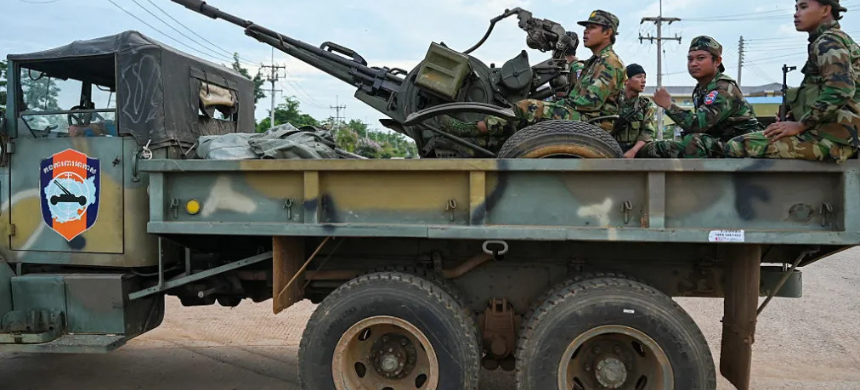Tensions between Cambodia and Thailand escalated further on Sunday as both countries accused each other of launching artillery strikes along their disputed border—just hours after U.S. President Donald Trump announced that both nations had agreed to pursue a ceasefire.
The latest flare-up comes four days into the deadliest clash between the two Southeast Asian neighbors in over a decade, with more than 30 people—mostly civilians—reported dead and over 130,000 residents evacuated from the border regions.
Cambodia’s Defence Ministry claimed Thai forces launched artillery and ground attacks Sunday morning in multiple areas, including Phnom Kmoach, near Thailand’s coastal Trat province. Cambodian officials alleged heavy shelling also struck temple sites.
In contrast, the Thai military accused Cambodia of firing into Thai territory, including near civilian areas. Surin province officials reported shell damage to homes and livestock deaths. Reuters reporters in Thailand’s Sisaket province also heard shelling early Sunday, though the origin remained unclear.
Local residents voiced support for a truce. “If there’s a ceasefire, it will help,” said Sisaket resident Thavorn Toosawan. “America pushing for peace is a good sign.”
Trump Calls for Immediate Ceasefire
President Trump said Saturday he had spoken with both Cambodian Prime Minister Hun Manet and Thai acting Prime Minister Phumtham Wechayachai. According to Trump, both leaders agreed to meet urgently and seek a ceasefire. “Both Parties are looking for an immediate Ceasefire and Peace,” Trump wrote on social media.
Prime Minister Hun Manet publicly backed the call for an unconditional ceasefire, also referencing his earlier agreement to a similar proposal from Malaysian Prime Minister Anwar Ibrahim.
Thailand, however, issued a more cautious response. Acting PM Phumtham said his country supports the idea of a ceasefire “in principle” but wants to see “sincere intent” from Cambodia before initiating talks.
Longstanding Border Dispute
The renewed violence follows the death of a Cambodian soldier in May during a brief skirmish, which intensified a longstanding territorial dispute. Both nations increased troop presence along their 817-kilometer border, triggering a diplomatic crisis that threatened Thailand’s fragile ruling coalition.
The core of the conflict lies in the contested ownership of ancient Hindu temples—particularly the Ta Moan Thom and the 11th-century Preah Vihear. Although the International Court of Justice awarded Preah Vihear to Cambodia in 1962, tensions reignited in 2008 when Cambodia attempted to list the temple as a UNESCO World Heritage site. Sporadic clashes over the years have led to numerous casualties.
In June, Cambodia requested the International Court’s intervention to resolve the ongoing border dispute. Thailand, however, rejects the court’s jurisdiction and insists on resolving the matter bilaterally.
Read more: Thailand Aims to Hold Direct Negotiations with Cambodia.











